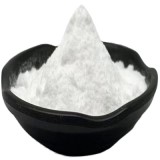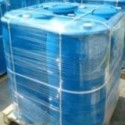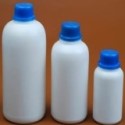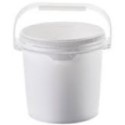 |
Trehalose Dihydrate and Anhydrous USP NF FCC Food Grade Supplier Exporter Manufacturers' Representative |
Email: info@ammol.org |
Call Toll Free +1-855-552-6665 |
Trehalose Dihydrate and Anhydrous
CAS Number: 99-20-7 Anhydrous and 6138-23-4 Dihydrate
Molecular Formula: C12H22O11 Anhydrous and C12H22O11-2H2O Dihydrate
Molecular Weight: 342.296 g/mol Anhydrous and 378.33 g/mol Dihydrate

Trehalose Dihydrate and Anhydrous
Specifications of Trehalose USP NF Grade:
C12H22O11 --- 342.30
C12H22O11- 2H2O --- 378.33
α-d-Glucopyranosyl α-d-glucopyranoside.
Anhydrous --- CAS 99-20-7
Dihydrate --- CAS 6138-23-4
DEFINITION
Trehalose is a stable, nonreducing disaccharide with two glucose molecules linked in an α,α-1,1 configuration. It is obtained through enzymatic conversion of food-grade starch. It contains NLT 97.0% and NMT 102.0% of trehalose (C12H22O11 ), calculated on the anhydrous basis.
IDENTIFICATION
A. Infrared Absorption
B.
Sample solution: 400 mg/mL of Trehalose
Analysis: Add 0.4 mL of a solution containing 1-naphthol in 95% alcohol (1 in 20) to 1 mL of the Sample solution. Gently add 2 mL of sulfuric acid to the solution.
Acceptance criteria: A violet color develops at the interface between the two solutions. C.
Glycine solution: 40 mg/mL of glycine
Sample solution: 40 mg/mL of Trehalose
Analysis: Add 1 mL of diluted hydrochloric acid to 2 mL of the Sample solution. Allow to stand for 20 min at room temperature. Add 4 mL of sodium hydroxide TS and 2 mL of Glycine solution to the Sample solution. Heat the solution for 10 min in boiling water.
Acceptance criteria: A brown color does not develop.
ASSAY
To pass the test by Chromatographic system
Acceptance criteria: 97.0%–102.0% on the anhydrous basis
Residue on Ignition: NMT 0.1%, determined on 2.0 g of Trehalose
Related Substances: To pass the test by Chromatographic system
Acceptance criteria: For the Sample solution, the areas of any peaks corresponding to maltotriose and other polysaccharrides and eluting before trehalose are NMT half of the area of the peak corresponding to trehalose in the chromatogram of the Standard solution (0.5%). The areas of any peaks corresponding to glucose and eluting after trehalose are NMT half of the area of the peak corresponding to trehalose in the chromatogram of the Standard solution (0.5%).
Color and Clarity of Solution: To pass the test.
Optical Rotation, Specific Rotation:
Sample solution: 100 mg/mL
Acceptance criteria: +197° to +201° at 20C
Microbial Enumeration Tests and Tests for Specified Microorganisms: The total aerobic microbial count is NMT 100 cfu/g, and the total combined molds and yeasts count is NMT 100 cfu/g. It meets the requirements of the tests for absence of Salmonella species and Escherichia coli.
pH:
Sample solution: 100 mg/mL
Acceptance criteria: 4.5–6.5
Water Determination:
Sample: 0.1 g
Acceptance criteria
Anhydrous: NMT 1.0%
Dihydrate: 9.0%–11.0%
Bacterial Endotoxins Test: If labeled for use in preparing parenteral dosage forms, it also meets the following requirements. The level of bacterial endotoxins is such that the requirement in the relevant dosage form monograph(s) in which Trehalose is used can be met. Where the label states that Trehalose must be subjected to further processing during the preparation of injectable dosage forms, the level of bacterial endotoxins is such that the requirement in the relevant dosage form monograph(s) in which Trehalose is used can be met.
Chloride and Sulfate, Chloride:
Sample: 2.0 g
Acceptance criteria: No more chloride than corresponds to 0.70 mL of 0.01 M hydrochloric acid (NMT 0.0125%)
Chloride and Sulfate, Sulfate:
Sample: 2.0 g
Acceptance criteria: No more sulfate than corresponds to 0.83 mL of 0.005 M sulfuric acid (NMT 0.0200%)
Nitrogen Determination:
Sample: 5.0 g
Analysis: Proceed as directed in Method II, except increase the volume of sulfuric acid for digestion to 30 mL and the volume of the sodium hydroxide solution (2 in 5) to 45 mL.
Acceptance criteria: NMT 0.005%
Soluble Starch:
Sample solution: 10% Trehalose (w/v)
Analysis: Add several drops of iodine TS to the Sample solution.
Acceptance criteria: No blue color develops.
Specifications of Trehalose FCC Food Grade:
C12H22O11·2H2O Formula weight 378.33
CAS: anhydrous 99-20-7
CAS: dihydrate 6138-23-4
DESCRIPTION
Trehalose occurs as a nonhygroscopic, white, crystalline powder. It is obtained through enzymatic conversion of food-grade starch into a stable, nonreducing disaccharide with two glucose molecules linked in an _,_-1,1 configuration. The powder is freely soluble or readily dispersible in water. Trehalose is typically used in its dihydrate form.
Function: Humectant; nutritive sweetener; stabilizer; thickener; texturizer.
Identification: Observe a sample with a light microscope at 50×. Trehalose is composed of colorless, rectangular crystals with a prismatic structure.
Assay: Not less than 98.0% Trehalose, calculated on a dry basis.
Color in Solution: Less than or equal to 0.100.
Lead: Not more than 0.1 mg/kg.
Loss on Drying: Not more than 1.5%.
pH of a 30% Solution: Between 4.5 and 6.5.
Residue on Ignition: Less than or equal to 0.05%.
Turbidity of a 30% Solution: Less than or equal to 0.050
We also supply Trehalose Dihydrate and Anhydrous of BP Ph Eur grade.
Please visit SDS Safety Data Sheet of Trehalose Dihydrate and Anhydrous Suppliers.
American Molecules, also known as ammol.org is a distributor, supplier and manufacturers' representative of all types of Pharmaceuticals, Functional Ingredients, Excipients and Specialty Chemicals in Texas USA. Our principals manufacture supply and export USP NF BP, Ph Eur, etc grades of chemicals pure and reagent grade, mineral fortifiers, FCC food grade. Tailor made particle size and customized specifications are offered. The principal's facility is having one or more of the certifications like FDA approval and GLP, cGMP, ISO9001, ISO14001, ISO/IEC 17025, ISO22000, FSSC 22000, ISO45001, FSSAI, Kosher, HALAL, COPP, WHO-GMP certified and Written Confirmation (WC) for export to Europe is available. The manufacturers suppliers and exporters observe WHO Good Manufacturing Practices and Good Laboratory Practices.





Suppliers and Manufacturers' Representative:

9910 Bent Oak Dr
Houston, TX 77040, USA
Call Toll Free: 1-855-55-AMMOL 1-855-552-6665
Email: info@ammol.org